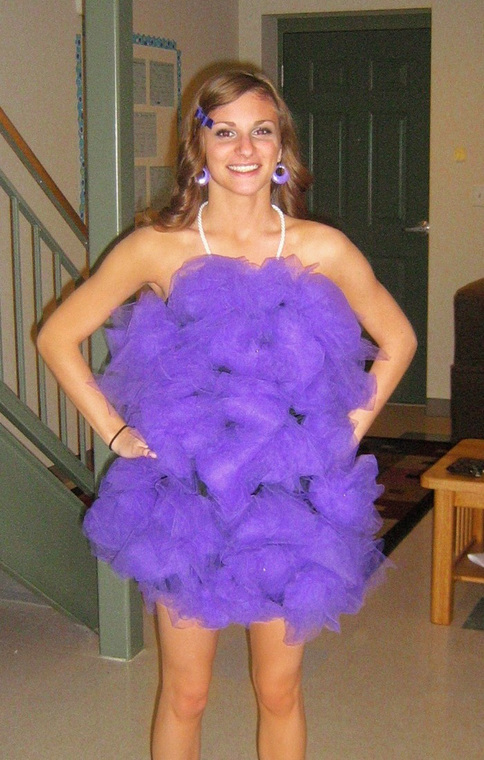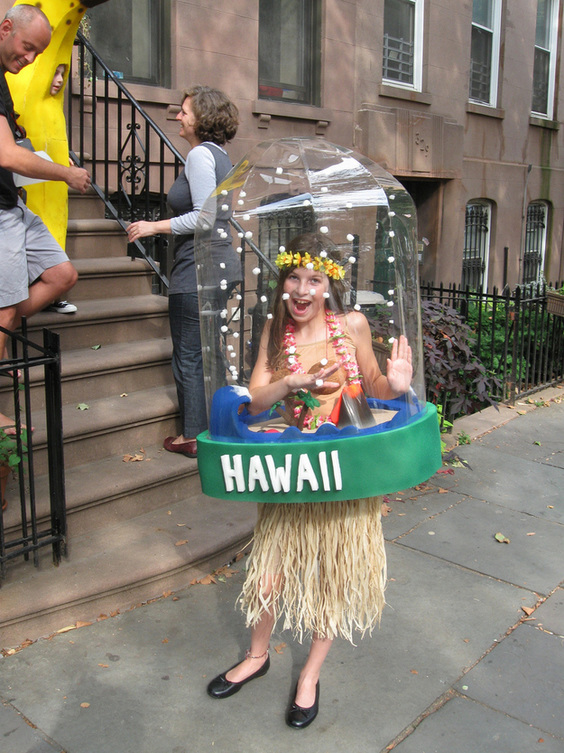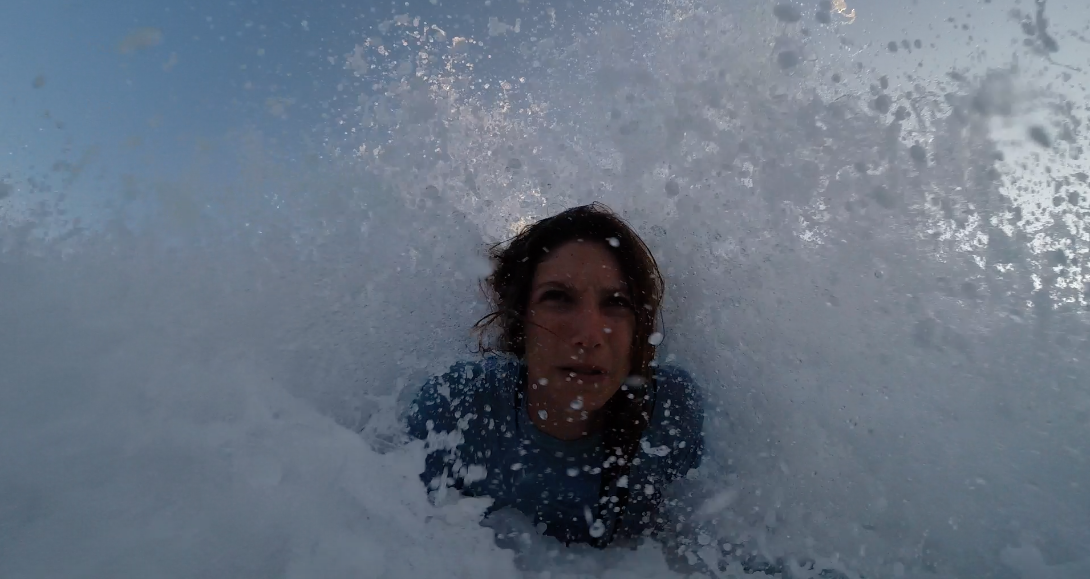|
A venture capitalist I respect... err, respect enough... recently said that he very pointedly never compliments his daughter on her looks. Because sexism, feminism, bla bla bla.
He invests wisely, so I guess I should care what he has to say. But honestly, I think he's wrong on this. Sadly, other "experts" (which, all too often, means "people on the internet with an opinion") have echoed the sentiment -- and it's time to set the record straight.
It's fine to tell your kids they're beautiful -- and it's probably bad not to.
See, when I was a child, people frequently told me I was pretty/beautiful/gorgeous/whatever -- and I can't think of a single negative effect it had on me. Because here’s the thing: I wasn’t only praised for my good looks. I was praised for my hard work on my family's farm. I was praised for my good grades and athleticism. I was praised for my art and writing and creativity. I was praised for my kindness and compassion, which is something I’m not sure would be true anymore. I was praised for how aggressive I was on the court and told I was capable of doing anything I wanted. Why can't I be all that and pretty, too? Honestly, I think anyone who says it’s “bad” to compliment a child’s looks needs to understand a few things: 1. Kids are highly aware of attractiveness from the time they're born. Even as babies, they are drawn to beautiful faces. As they grow older, studies show that kids don't trust ugly people as much as attractive people. You can’t make kids not notice attractiveness. You can't stop them from wondering about their own attractiveness. All you’re going to do is make them wonder, “How come no one ever tells me I’m pretty?” Leading to my next point: 2. When you compliment kids on everything but their looks, they might come to the conclusion that they have to choose between smart/athletic/accomplished... and pretty. This could seriously undermine their performance and motivation in their activities. Think about it. Especially as a girl, it's hard enough to stay in math, sports, or other stereotypically "girl" things, as peers begin to pressure you to conform to gender norms. When you induce this either-or mentality, you could seriously derail her. Looks are probably going to be important to your child no matter what. So you may as well make sure they know that they can be attractive and successful. After all, as I wrote in Go Ahead and Let Your Tween Dress Slutty for Halloween - Just Make Her Build the Costume Herself: "There is no way you're going to squash your daughter's desire to be sexy. So what message should you send your daughter this Halloween? How about: It is fun, and totally possible, to be both smart and sexy. Halloween is a chance for you to show your child that she is not boring, bland and interchangeable. She is not a girl whose essence can be captured by a something out of a box. She doesn't have to be something someone else could be. She can take things into her own hands and be whatever she wants. She can use her imagination, her sense of humor, her interest in science or current events or pop culture or whatever... and build a costume around it. Halloween is a chance for your daughter to learn how to use power tools. To practice brainstorming different ideas and ways to solve a problem. To start seeing things not for what they are, but for what they could be." Perhaps a loofa:
Or a snow globe:
3. Kids learn a lot of their body insecurities from you. As I wrote in Dear Well-Meaning Parents and Educators: Stop Giving Girls Self-Esteem Problems: In the course of promoting "average" body image, she's alerted girls all over the world that that they must be protected from interactions with "skinny bitches" like Barbie and Cinderella. That they will never be as skinny or beautiful as Princess Jasmine or Ariel… Kids are excellent social modelers. They are experts on picking up on your fears, attitudes and behaviors. Even when they're babies, they can read your emotions to decide what is "safe," and what is dangerous. A baby will literally crawl off a (perceived) cliff is the mother's face indicates that it is safe to do so. When you get all uncomfortable about skinny, beautiful women, your kids notice. When you explain to your daughters that Cinderella is unrealistic and they shouldn't compare themselves to her, you send the message they are not, and will never be, as beautiful as Cinderella. That beauty is skin deep. And that if you are not beautiful, you should feel bad. Because skinny, beautiful people make people like you feel bad. Likewise, when you make a conscious effort never to compliment your kids on their looks, your kids notice. They see you looking at their outfit, their hair, their makeup, their new sports uniform -- then starting to say something. But you stop. "Why?" they'll wonder. And they could pick up one of those insecurities. 4. It's nice to hear a compliment. Now, I’m not a big fan of the “self-esteem movement.” There is no benefit to having self-esteem. Kids with more self-esteem aren’t more likely to get good grades, have more friends, or… anything. The only correlational relationship self-esteem has is with happiness — but, of course, it’s a correlation. So we don’t know if happiness causes self-esteem, or if self-esteem causes happiness, or none of the above. For that reason, you shouldn’t go out of your way to “give” your kids self-esteem. Self-esteem is something they have to earn on their own — and losing is going to be just as important as winning. (What do you think feels better? "I got a participation ribbon," or, "I worked hard all season, and I finally scored a goal in the last game!") But that's not to say a nice compliment can't go a long way in making someone feel good. Especially if it's related to something they care about — the hairstyle they spent all morning working on; their muscles, which they work hard on every day at sports practice; their smile, if they love to tell jokes. *** Yes, I grew up receiving lots of positive comments about my looks. No, it didn't make me vain, narcissistic, arrogant, image-obsessed, or lazy. It actually inspired me to dress pretty modestly into adulthood -- I already knew I was pretty, and I wanted people to be drawn to me because of my ideas, not my short skirt. (See also: Are You Really Expressing Yourself? Or Are You Just Dressing a Certain Way?) Eventually I traded in my XL Beatles t-shirt and baggy jeans for more tailored, "grown-up" clothes. But it remains important to me that people like me for the right reasons. (See also: I don't want to be with a man who loves my intelligence.) Moreover, I've remained a very confident person. People can try to make fun of my appearance, but it definitely won't bother me. For example, I was recently chatting with a good friend, and somehow attractiveness came up. He asked me to rate his appearance. Reluctantly (it seemed like a bad idea, but whatever), I said he was probably an 8.5. "Now, what am I?" I fully expected him to say 10. Not in an OMG-I'm-so-amazing sort of way. Just in an, I-don't-know-why-I-wouldn't-be-a-10 sort of way. I don't stand in front of the mirror and look for flaws. I look in the mirror, and I #ChooseBeautiful. (In case you're having trouble seeing the difference, think of it this way. According to The Body Project: An Intimate History of American Girls, the number one most important thing in a woman's purse used to be lipstick -- something that enhances your beauty. Now, it's concealer -- something that covers your flaws. It's kind of like that.) So imagine my surprise when he said I was a 9. "Really?" I asked. "Why?!" If I had to guess, I thought to myself, maybe this guy doesn't like so many muscles on a girl -- his loss! Or, I thought, it could be my hair -- I don't always remember to brush it or get it cut every year, and it's often damaged by salt, sun and chlorine, so I know it's not, like, aaaa-mazing. But then he said the last thing I'd expected: "Well... Jake says you're... sort of a butter face." For those who aren't familiar, "butter face" is a really mean way of describing a woman. It means that everything about her is hot... but her face. It's an awful thing to say about someone. It's an even worse thing to say to them. But on a scale of 1-10, hearing this hurt my feelings 0. But I was a 10 for bemused. After hearing so many supportive compliments growing up, this one asshole thing didn't hurt me at all.
But, I mean, let's be real: I can definitely be a bit of a butterface. #kookslam
Instead, I thought it really funny, and laughed as I shared the story with some friends later. But here's the thing: Someday, someone is going to say something really mean to your child. If your child is a girl, chances are it will be about her looks. They might even call her a butter face. When that happens... don't you want her to know, without a doubt, that you think she's beautiful?
9 Comments
This is interesting. I am a feminist. I'd never considered whether my Dad (who was not a feminist, but wasn't against feminism either) had ever called me beautiful, my Mother did. I really don't think he ever did, he probably said "You look very nice," when I dressed up occasionally. I never expected it or wanted him to say it. My father's friends would occasionally compliment me like this, which honestly creeped me out, but amused me as well, especially since my father and brothers never did. I'm glad my looks were never important to them, I feel like they really saw me. If a child wanted her father to say it, though, I think that would be a good thing if he did.
Reply
Kevin geets
3/28/2017 09:55:36 am
people who are objectively unattractive should just kill themselves & get it over with
Reply
4/7/2017 11:00:57 am
Or... they could find other skills, traits and qualities to be foundational parts of their identity.
Reply
Thank you. I have known too many smart, beautiful young women who did not realize they were beautiful because their well-meaning parents wanted to de-emphasize their looks in favor of their brains. These girls were easy targets for savvy males who knew that complimenting them on their looks would feed a craving they've had all their lives. It was sad to see.
Reply
Penny
11/26/2018 05:52:05 pm
I recently found out that my Dad decided not to praise me for being pretty as a young child (it wasn't something that I ever noticed!). I was complimented on being good, kind, polite and clever instead (I remember that).
Reply
Aren Kevorkian
1/4/2022 08:06:56 am
This might make sense...if you are actually beautiful.
Reply
1/4/2022 11:06:36 am
Maybe you're right -- I don't know. Personally, I have a hard time imagining someone who would respond to, "You're beautiful!" or "You look so nice today!" with, "You're LYING."
Reply
Aren Kevorkian
1/4/2022 11:19:44 am
Of course it's not a "They're lying" thing, more of a dissonance between what you think and what you're being told by different groups of people.
Anthony Salley
10/5/2022 07:19:25 pm
This is so cute and ill informed.
Reply
Leave a Reply. |
About the Author

Eva is a content specialist with a passion for play, travel... and a little bit of girl power. Read more >
Want to support The Happy Talent? CLICK HERE!
Or Find me on Patreon!
What's Popular on The Happy Talent:
Trending in Dating and Relationships:
What's Popular in Science: Playfulness and Leisure Skills:
Popular in Psychology and Social Skills:
Categories
All
|































 RSS Feed
RSS Feed